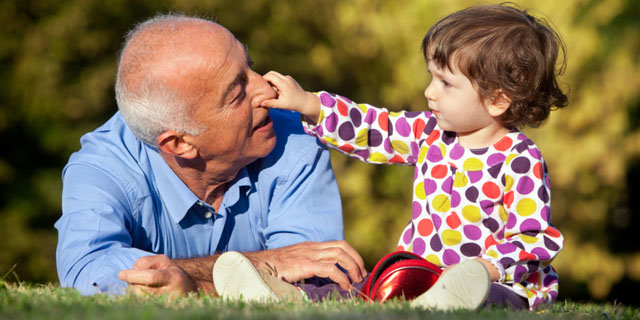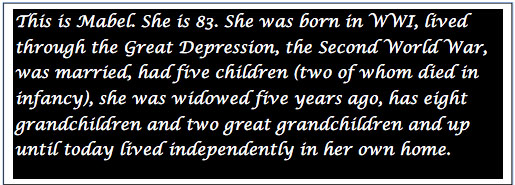Engaging Students to Love Ageing
Biological ageing is largely linear, psychological ageing is not

This is what makes older people so interesting to work with, while their biological self is deteriorating, inside the older person is all that has happened to them – a collection of stories and narratives – which can be recalled and reflected upon.
Unfortunately, our community and media are more likely to focus on decline and despair, especially one that involves a scandal – these are important as they can and do shine a light on those corners of the aged care ‘sector’ which should be exposed. But we need to tell the other stories.
I am a teacher at the University of Melbourne who works hard to interest students in working with older people – I want them to see more than the biological. I want them to think about the messiness, the complexity, the joys and despairs, humour and the ‘bonds of love’ that make up a life.
To do this we have to challenge old stereotypes. Almost forty years ago as a young social work student working on an older person’s ward at Royal Prince Alfred Hospital in Sydney I remember one of the medical team referring to the ‘broken hip in Bed 8’. Inside me, I knew this was wrong, but I was a student, and what would I say anyway. But I remember then I wanted to put a whiteboard above every older person’s bed on that ward and write on it, something like:

To take this into account means that health workers must take time to get to know the older person and be curious about their lives. When I recently asked my social work students to tell me what words came into their heads when I said, “older people”, the usual suspects came up: wrinkles, death, frailty, memory loss, dementia. But then I asked the same students to tell me what words came up when they thought of their grandparents, the list was very different: love, hugs, school holidays, treats, presents, stories.
Developing innovative ways so that students think about and consider older people involves us being more creative in our teaching. Universities themselves, can be ageist places, perhaps without meaning to be: here at The University of Melbourne it is very unusual to see a picture of an older student – youth is everywhere!
How can we do better?
Here are some ideas I have gleaned from a couple of conferences I attended last month: the Ageing and Society Conference in San Francisco and the Australian Association of Gerontology conference in Perth.
- Students are often ‘scared’ of working with older people and don’t know how to communicate effectively, it cannot be assumed that they know how to talk to an older person about often personal and private issues.
- Be aware of our own ageism when we are teaching e.g., don’t say ‘50 is the new 30’ – it’s not!
- The ‘bonds of love’ are powerful when working with older people and their families e.g., you are most likely to be abused by your adult children.
- We must not forget the psychological, when we are working with the biological – the internal world e.g. What is the impact of not being able to drive? What will it mean for the older person’s lifestyle?
- Create exercise and assignments that encourage students to look at ageing through different lenses e.g. wearing ageing suits to understand how it might feel to be an older person; asking students to take a comprehensive history of an older person.
- How to be honest when working with older people and how to broach difficult topics of conversation e.g. it is rare that an older person will be happy to go to a nursing home, and most people say “no” when asked. It is important to teach students how to have these difficult conversations about the realities that are associated with the ageing body/mind. As Bette Davis said: “Old age ain’t no place for sissies.”
Finally, how do we share these techniques and approaches with one another, so that we can engage students to ‘love ageing’ as much as in my early career as a social worker in a Children’s Hospital people said – “I love working with children”.
I would love to hear from you if you have any ideas or thoughts on teaching collaborations
[Source: Dr Ralph Hampson, Senior lecturer at the University of Melbourne, #ralphhampson, ralph.hampson@unimelb.edu.au]